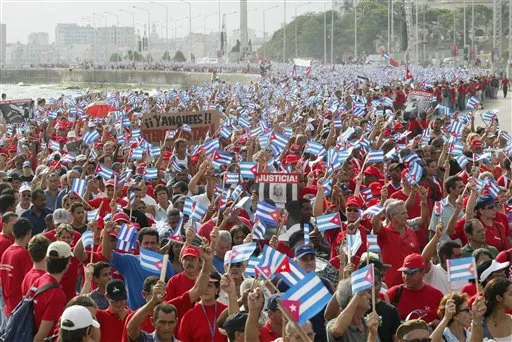journalofserviceclimatology.org – The Cuban diaspora, a term that encompasses the millions of Cubans who have left their homeland since the triumph of the Cuban Revolution in 1959, is a diverse and influential community spread across the globe. This article explores the Cuban exile experience, examining the reasons behind the exodus, the integration of Cubans into host countries, and the enduring connections between the diaspora and the island.
The Causes of the Exodus
The Cuban Revolution and the subsequent establishment of a socialist state led to a profound transformation of Cuban society. Many who opposed the new regime or feared persecution chose to leave the country. The exodus was further fueled by economic hardships, political repression, and the desire for freedom and opportunity.
The Early Waves of Exiles
The first significant wave of Cuban exiles arrived in the early 1960s, many of whom were professionals, business owners, and political figures from the pre-revolutionary era. These exiles settled primarily in the United States, with Miami becoming a focal point of the Cuban community. The 1980 Mariel Boatlift and the 1994 Balseros Crisis were other notable periods of mass emigration.
Integration and Cultural Impact
Cuban exiles have made significant contributions to their host countries, particularly in the realms of culture, politics, and business. In the United States, Cuban Americans have become a powerful political force and have influenced American culture through their cuisine, music, and art. Similar impacts can be seen in other countries like Spain, Mexico, and Venezuela, where Cuban communities have thrived.
The Cuban Adjustment Act
The Cuban Adjustment Act of 1966, a piece of U.S. legislation, has played a crucial role in the Cuban exile experience. It allows Cubans who arrive in the United States to apply for permanent residency after a year, a privilege not extended to immigrants from other countries. This policy has been both a source of contention and a catalyst for continued migration.
The Role of Exiles in Cuban Politics
Cuban exiles have been deeply involved in the political dynamics between the United States and Cuba. Many have advocated for a hardline stance against the Cuban government, while others have pushed for reconciliation and engagement. The diaspora’s influence has been felt through lobbying efforts, economic sanctions, and the promotion of human rights.
Maintaining Ties with the Homeland
Despite their physical distance from Cuba, many exiles have maintained strong emotional and familial ties to the island. Remittances sent by Cuban Americans have become a vital source of income for many Cubans, and family reunifications continue to occur, albeit with challenges due to political tensions and travel restrictions.
The Changing Face of the Diaspora
The Cuban diaspora is not a monolithic group; it is composed of various waves of exiles with different experiences and perspectives. The younger generation of Cuban Americans, for example, may have a more nuanced view of Cuba and the exile experience. As time passes, the diaspora continues to evolve, reflecting the changing dynamics of migration and globalization.
Conclusion
The Cuban diaspora is a testament to the resilience and adaptability of its members. The exile experience has been marked by challenges, achievements, and a persistent longing for the homeland. As Cuba and its diaspora navigate the complexities of the 21st century, the bonds between the island and its far-flung community remain a defining aspect of the Cuban identity, shaping the future of both the diaspora and the nation.
